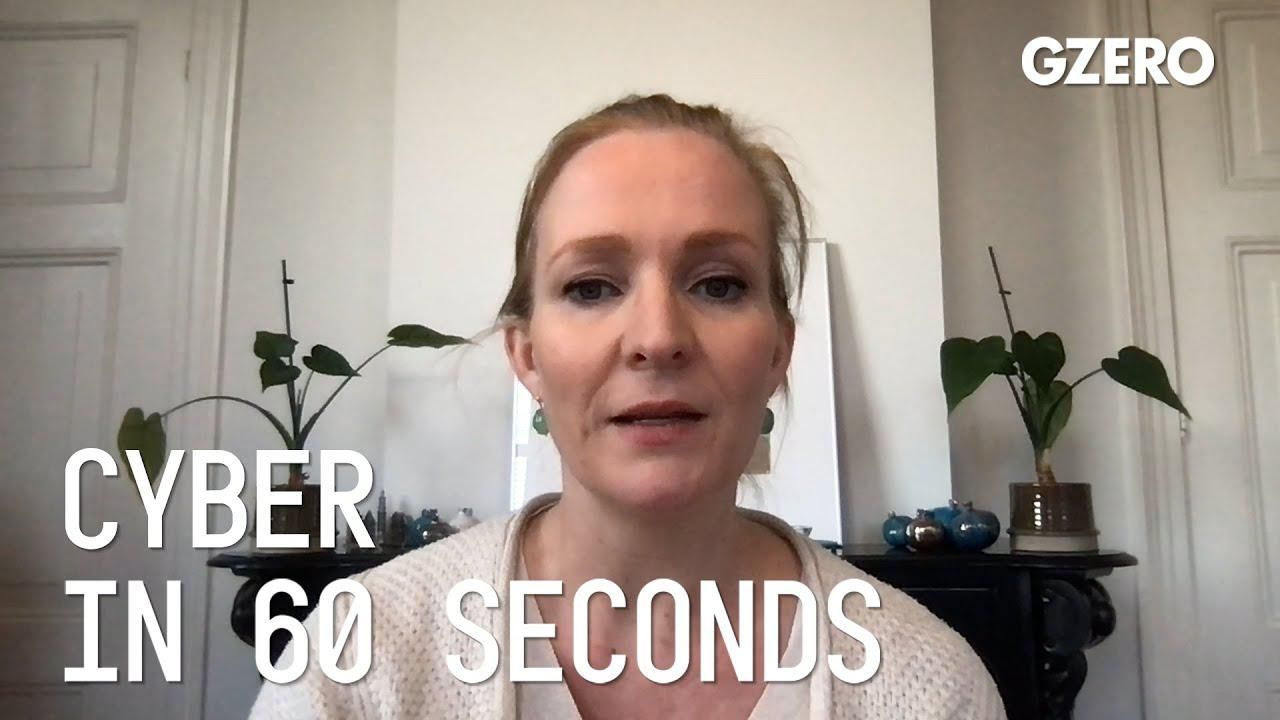Cyber in 60 Seconds
Limiting Putin's propaganda: Big tech & the Russia-Ukraine war

Outsized Power of Big Tech Revealed in Russia-Ukraine War | Cyber In :60 | GZERO Media

Marietje Schaake, International Policy Director at Stanford's Cyber Policy Center, Eurasia Group senior advisor and former MEP, discusses the Ukraine conflict from the cybersecurity perspective:
If you're like me, you've been glued to the news all week after Russia invaded Ukraine to understand what is happening on the ground and how the democratic community is responding. We've seen tectonic changes already in this past week, and we could say the same for Big Tech.
How is the Russia-Ukraine war testing the role of Big Tech?
Well, I do think we see their outsized power revealed once more. We saw Putin restricting access to platforms like Facebook, as he is losing grip over his propaganda narrative. But then also social media companies finally being forced to stop amplifying state propaganda channels of Russian media in the EU, due to new sanctions. But the fact that the platforms are not doing the same in the US and other jurisdictions says a lot about their reluctance. And there's also a problem with executing their own corporate policies. New research shows that Facebook fails in 91% of cases to correctly label content when it is Russian state sponsored. It's very messy.
What is social media's role in the Russia-Ukraine war?
Well, we've seen a lot of clips, and I've been quite impressed with how the Ukrainian side has seemed to be one step ahead each time. President Zelensky was addressing the world in response to rumors that he had actually fled the country, to show that none of that was true. And there are also clips of how captured Russian soldiers, often looking like teenagers, are fed while calling their mothers crying, and it paints a picture of how young boys are sent into the battlefield without a clue of what they were sent to do.
But having said all this, it's only been a week of this unjust war and a lot will still have to be researched more deeply. So we will keep you posted.
With the US leading production and China driving new reactor development, Bank of America breaks down the who, what, where, when, and why behind nuclear’s return. Stay ahead of global energy trends with Bank of America Institute.
Chris, an Army veteran, started his Walmart journey over 25 years ago as an hourly associate. Today, he manages a Distribution Center and serves as a mentor, helping others navigate their own paths to success. At Walmart, associates have the opportunity to take advantage of the pathways, perks, and pay that come with the job — with or without a college degree. In fact, more than 75% of Walmart management started as hourly associates. Learn more about how over 130,000 associates were promoted into roles of greater responsibility and higher pay in FY25.
Last week, at the Munich Security Conference, a group of global technology providers, including Microsoft, announced the Trusted Tech Alliance — committed to shared, verifiable principles for trusted, transparent, and resilient technology across borders. At a moment of economic volatility and zero-sum technological competition, countries and customers are demanding greater accountability from technology providers. The Alliance addresses this by bringing together companies from across Africa, Asia, Europe, and North America around shared commitments: transparent governance, secure development practices, supply chain oversight, open digital ecosystem, and respect for the rule of law — ensuring the benefits of emerging technologies strengthen public trust while driving job creation and economic growth. Explore the Trusted Tech Alliance here.